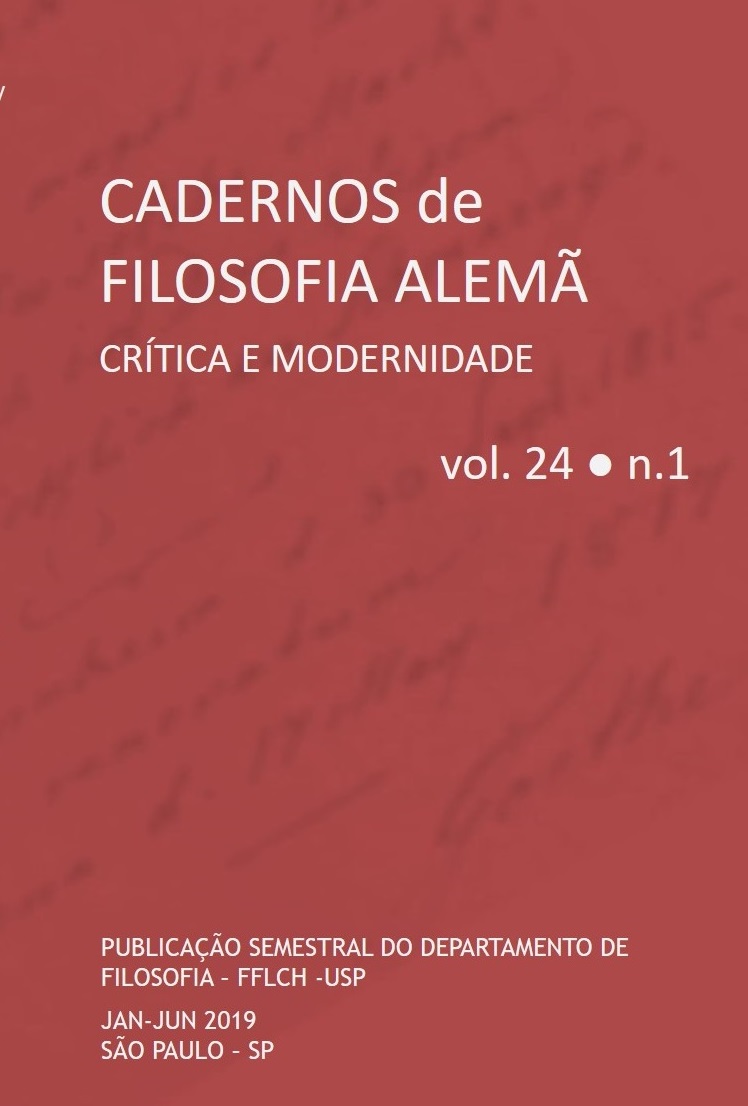Representation and Phenomenalism in the Critique of Pure Reason
DOI:
https://doi.org/10.11606/issn.2318-9800.v24i1p151-172Palavras-chave:
Representation, Phenomenalism, Spatial objects, Mental entities, Transcendental idealismResumo
Kant has often been accused of being a phenomenalist, i.e., of reducing spatial objects to representations that exist only in our minds. I argue against this reading. Given Kant’s claim that appearances are mere representations, the only way to avoid the accusation of phenomenalism is to provide an alternative conception of “representation” according to which the claim that something is a mere representation does not entail that it is a mere mental item (or an organized collection of mental items). I offer evidence that Kant does not conceive of representations as mental items and outline an alternative conception of representations.
Downloads
Referências
Allais, L. (2015). Manifest Reality – Kant’s Idealism and his Realism. New York: Oxford University Press.
Allison, H. (1973). Kant’s Critique of Berkeley. Journal of the History of Philosophy, 11(1), pp.43–63.
Beiser, F. (2002). German Idealism: The Struggle against Subjectivism. Cambridge: Harvard University Press.
Caranti, L. (2007). Kant and the scandal of philosophy: the Kantian critique of Cartesian scepticism. Toronto: University of Toronto Press.
Guyer, P. (1987). Kant and the Claims of Knowledge. New York: Cambridge University Press.
Kant, I. (1998). Critique of Pure Reason. Translated by Paul Guyer and Allen Wood. Cambridge: Cambridge University Press.
Kant, I. (2004). Prolegomena to Any Future Metaphysics. Translated by Gary Hatfield. New York: Cambridge University Press.
Strawson, P. (1966). The Bounds of Sense. New York: Routledge.
Smith, N.K. (2003 [1918]). A Commentary to Kant's 'Critique of Pure Reason'. New York: Palgrave Macmillan
Turbayne, C. (1955). Kant’s Refutation of Dogmatic Idealism. Philosophical Quarterly, 5, pp. 225–44.
Van Cleve, J. (1999). Problems from Kant. Oxford: Oxford University Press.
Downloads
Publicado
Edição
Seção
Licença
As informações e conceitos emitidos em textos são de absoluta responsabilidade de seus autores.
Todos os artigos anteriores a 5 de julho de 2018 e posteriores a julho de 2021 estão licenciados sob uma licença CC BY-NC-ND, exceto os publicados entre as datas mencionadas, que estão sob a licença CC BY-NC-SA. A permissão para tradução por terceiros do material publicado sob a licença CC BY-NC-ND poderá ser obtida com o consentimento do autor ou autora.
Políticas de acesso aberto - Diadorim



